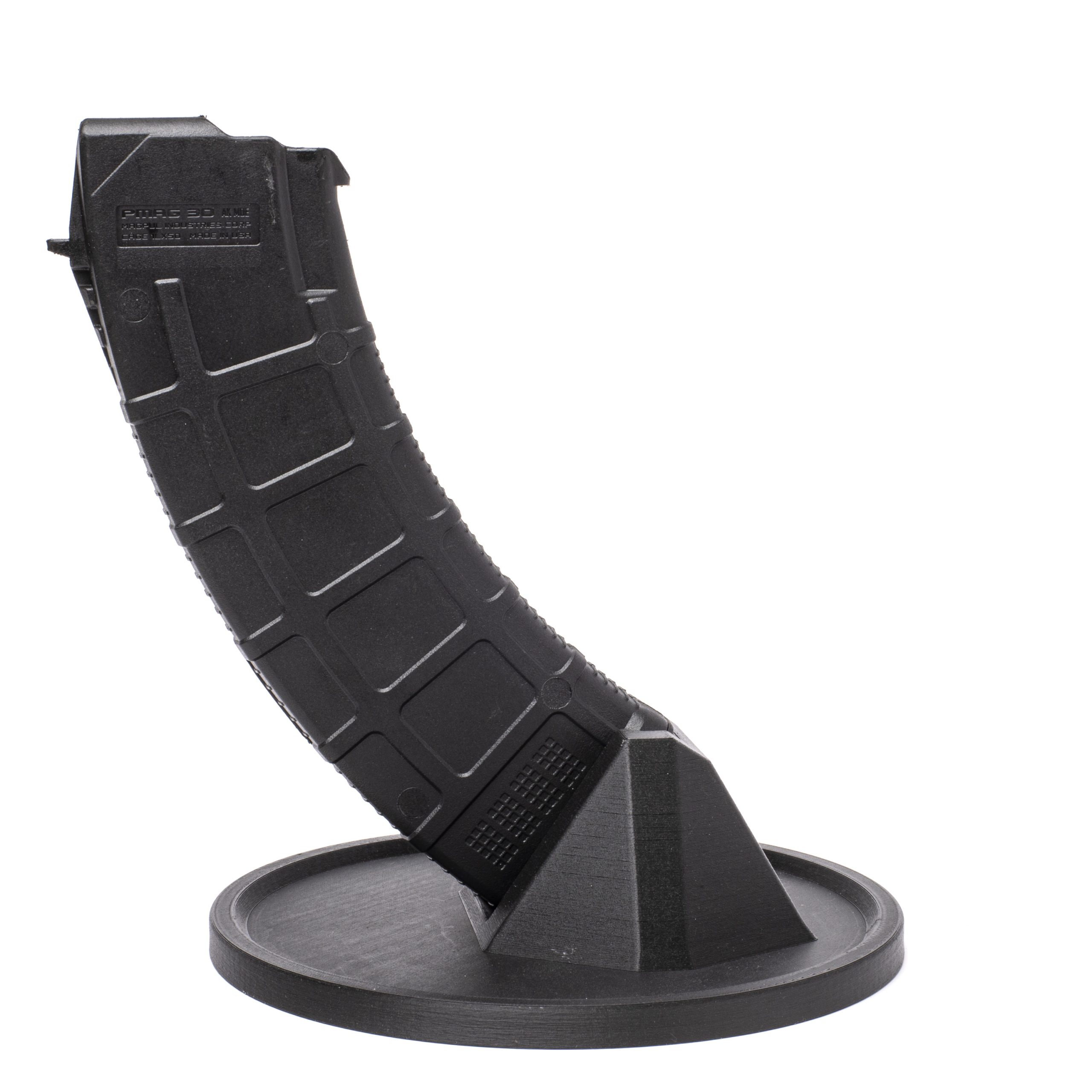
Categories:
The AK-47, a legendary gun originally designed by Mikhail Kalashnikov, has cemented its place as one of the most recognizable and widely used rifles in the world. Since its inception in the late 1940s, the AK-47 has been produced by numerous manufacturers across various countries, each contributing to its storied legacy. However, not all AK-47s are created equal; variations in quality control practices among manufacturers can significantly impact performance, reliability, and longevity.
Quality control in guns manufacturing is paramount, especially for military-grade weapons like the AK-47. A well-crafted rifle must withstand harsh conditions while delivering consistent accuracy and reliability. The production process involves meticulous attention to detail at every stage— from selecting high-quality materials to rigorous testing protocols before a weapon reaches consumers or military personnel. These practices ensure that each gun operates as intended under diverse circumstances.
Several factors influence the quality control of AK-47 manufacturing. National standards and regulations play a crucial role; countries with stringent arms manufacturing laws often produce rifles that meet higher quality benchmarks. Additionally, individual manufacturers may adopt advanced technology and processes to enhance their production capabilities. Companies that invest in modern machinery and skilled labor tend to yield better results than those relying on outdated methods.
Moreover, historical context cannot be overlooked—manufacturers with a legacy rooted in military service often uphold rigorous quality standards due to their commitment to reliability under combat conditions. As consumers become increasingly discerning about their guns’ performance and safety features, understanding which manufacturers prioritize quality control becomes essential for anyone considering an AK-47 purchase. This nuanced exploration of manufacturer practices will illuminate which brands stand out for their commitment to excellence in both craftsmanship and reliability.
Quality control is a critical component in the manufacturing of guns, particularly for iconic models like the AK-47. Given the gun’s storied history and widespread use across various contexts—ranging from military to civilian applications—the stakes are high when it comes to ensuring reliability and safety. In gun production, quality control serves multiple essential functions that contribute to the overall effectiveness and trustworthiness of the weapon.
At its core, quality control involves systematic processes designed to monitor and maintain standards throughout production. This includes rigorous testing at various stages, from raw material selection to final assembly. For a weapon such as the AK-47, which operates under harsh conditions and is often subjected to rugged environments, any lapse in quality can lead not only to malfunction but also serious safety risks for users.
Moreover, quality control helps manufacturers establish their reputation in a competitive market. In an industry where performance is paramount, consistency becomes key; guns must function reliably every time they are called upon. A manufacturer that prioritizes stringent quality assurance protocols demonstrates a commitment to excellence that resonates with consumers—whether they are military personnel relying on their weapons in combat or civilians purchasing guns for self-defense or sport shooting.
Additionally, effective quality control can impact long-term durability and maintenance costs. Well-manufactured guns require less frequent servicing and exhibit greater longevity than those produced under lax standards. This not only enhances user satisfaction but also reinforces brand loyalty.
In summary, robust quality control measures are indispensable in gun production; they ensure reliability, uphold safety standards, enhance brand reputation, and ultimately contribute to user confidence. As such, discerning consumers looking for AK-47s should prioritize manufacturers known for their unwavering commitment to these essential practices.
The AK-47, a legendary gun known for its reliability and durability, has been produced by numerous manufacturers across the globe since its inception in the late 1940s. Each manufacturer brings distinct characteristics to their production processes and quality control measures. The origins of the AK-47 trace back to the Soviet Union, where it was first manufactured by the Izhevsk Mechanical Plant.
This factory set a standard for robust construction and ruggedness that many subsequent manufacturers have aimed to replicate or enhance.
Beyond Russia, several countries have established themselves as reputable producers of AK-47 variants. In Eastern Europe, nations like Bulgaria and Romania have developed their own models that retain the core design features while incorporating local manufacturing techniques. Bulgarian-produced rifles are often noted for their high-quality materials and meticulous assembly processes, making them favorites among enthusiasts. Romanian variants are more affordable but can vary significantly in quality depending on the specific factory and production run.
In Asia, China has been a significant player in AK-47 production through factories like Norinco. Chinese versions are known for their mass production capabilities but can sometimes suffer from inconsistent quality controls due to varying standards across different manufacturing plants.
More recently, American companies such as Palmetto State Armory and Century Arms have entered the market with their interpretations of the classic design. These manufacturers emphasize modern manufacturing technologies and stringent quality checks to meet consumer demands for precision and reliability.
Ultimately, while many manufacturers produce functional AK-47s, those that prioritize rigorous quality control—often evident in consistent performance under adverse conditions—stand out among competitors. Enthusiasts must consider not only brand reputation but also individual product reviews when assessing overall quality within this diverse landscape of AK-47 offerings.
In the gun industry, quality control is paramount to ensure the reliability, safety, and performance of each weapon produced. Key quality control standards are implemented throughout the manufacturing process to meet stringent requirements that not only enhance product durability but also uphold the trust placed in guns by military personnel, law enforcement, and civilian users alike.
One of the foundational aspects of quality control in guns manufacturing is adherence to international standards such as ISO 9001. This certification emphasizes a systematic approach to managing processes and improving efficiency. Manufacturers who achieve this standard demonstrate their commitment to maintaining consistent quality through rigorous documentation, regular audits, and continuous improvement practices.
Another critical component involves precision engineering and dimensional accuracy. Guns must be crafted with tight tolerances; even minor deviations can lead to malfunctions or unsafe conditions. Advanced machining technologies like CNC (Computer Numerical Control) milling are often employed in high-quality production environments to ensure components are manufactured with exact specifications.
Material selection also plays a crucial role in quality control. Reputable manufacturers invest in high-grade steel or polymer materials that provide superior strength and resilience against wear over time. Rigorous testing protocols often accompany these materials; they undergo stress tests, corrosion resistance evaluations, and temperature extremes assessments to confirm their suitability for gun production.
Additionally, effective training programs for employees significantly contribute to maintaining high-quality standards. Skilled workers who understand the intricacies of gun assembly can identify potential issues early on in the manufacturing process. Regular inspections at various stages of production further bolster quality assurance efforts by catching defects before they escalate into larger problems.
Ultimately, a manufacturer’s commitment to stringent quality control standards not only enhances product reliability but also fosters customer confidence—essential elements for those relying on AK-47s for defense or sport shooting purposes.
When evaluating the quality control of various AK-47 manufacturers, it is essential to consider the historical context, production techniques, and reputation within the guns community. Two leading manufacturers often discussed are Kalashnikov Concern in Russia and Arsenal in Bulgaria, both of which have built their reputations on stringent quality assurance protocols.
Kalashnikov Concern, as the original manufacturer of the AK-47, boasts decades of experience in gun production. Their commitment to quality control is evident through their adherence to military standards and rigorous testing processes. Each component undergoes meticulous inspections throughout manufacturing, ensuring that only those meeting high specifications make it into final assembly. The company employs advanced technology alongside traditional craftsmanship techniques, allowing for precision while maintaining the AK’s rugged reliability that has made it legendary.
In contrast, Arsenal Bulgaria has carved a niche for itself by blending modern manufacturing practices with a deep respect for traditional designs. Arsenal’s approach involves using high-quality materials and advanced machining processes that enhance durability and performance. Their models are often praised for superior fit and finish compared to many other manufacturers. Quality control at Arsenal includes detailed inspections at each stage of production, ensuring consistency across batches.
Additionally, smaller manufacturers from countries like Romania or Serbia have also emerged with competitive offerings. While some may achieve commendable quality levels, they often struggle with consistency due to varying manufacturing standards or fluctuating resource availability.
Ultimately, both Kalashnikov Concern and Arsenal stand out as leaders in quality control within the AK-47 market. However, consumers should consider individual preferences regarding aesthetics and specific features when selecting a manufacturer since these factors can significantly influence overall satisfaction with their purchase.
When evaluating the quality control of AK-47 manufacturers, customer reviews and feedback provide invaluable insights into the real-world performance and reliability of these guns. Many enthusiasts and collectors emphasize the importance of consistent quality, noting that even slight variations in manufacturing can significantly impact a weapon’s accuracy, durability, and overall functionality.
Users often highlight manufacturers such as Arsenal Inc. and Russian Izhmash for their rigorous quality control processes. Customers frequently remark on how Arsenal rifles exhibit tight tolerances and reliable operation right out of the box. Reviewers appreciate the attention to detail in finish work and components, with many stating that these rifles perform exceptionally well under various conditions. This reputation for excellence is often reinforced by long-term users who have put thousands of rounds through their guns without experiencing malfunctions.
On the other hand, some customers express concerns about certain manufacturers that may compromise quality for cost-effectiveness. Reviews indicate that while some budget-friendly options can be appealing to new buyers, they may suffer from inconsistent performance or subpar materials. Users have reported issues such as misfeeding or poor fitment in lower-end models, which can detract from an otherwise enjoyable shooting experience.
Feedback also points toward customer service experiences as a crucial factor when assessing manufacturer quality control. Satisfied customers often mention responsive support teams willing to address concerns or rectify issues promptly. In contrast, negative experiences with warranty claims or unresponsive service can tarnish a manufacturer’s reputation even if their products are high-quality.
Ultimately, customer reviews serve as a critical barometer for assessing AK-47 manufacturers’ commitment to quality control. By considering firsthand accounts from fellow gun owners, potential buyers can make informed choices about which brands align with their expectations for reliability and performance.
When it comes to selecting the best AK-47 based on quality control, the decision ultimately hinges on a blend of rigorous manufacturing standards, consistent performance, and reliability. The AK-47’s storied legacy as a robust and resilient gun is largely attributed to its design principles; however, the quality of production can vary significantly between manufacturers. Therefore, understanding which brands prioritize quality control processes is crucial for discerning buyers.
Manufacturers that implement stringent quality assurance protocols tend to produce guns that not only meet but exceed industry standards. These companies typically engage in comprehensive testing throughout the production cycle—from sourcing raw materials to final assembly. They often utilize advanced technologies like CNC machining and precision tooling, which help ensure uniformity and accuracy in each weapon produced.
Moreover, reputable manufacturers invest in continuous training for their workforce, fostering an environment where skilled labor is synonymous with high-quality output. This commitment manifests itself in durability and overall functionality—key factors that are indispensable when relying on a gun in critical situations.
Additionally, consumer feedback plays an essential role in identifying manufacturers with superior quality control practices. Brands that actively engage with their customers and address concerns regarding product defects or performance inconsistencies demonstrate a willingness to uphold their reputation through transparency and accountability.
Ultimately, choosing the best AK-47 involves more than just brand recognition; it requires a discerning approach to evaluating each manufacturer’s commitment to quality control. By prioritizing brands known for their rigorous standards and customer-centric practices, buyers can invest confidently in an AK-47 that will perform reliably under various conditions while also reflecting craftsmanship honed over decades of innovation in guns manufacturing.
The right choice not only enhances personal safety but also upholds the integrity of this iconic weapon’s legacy.
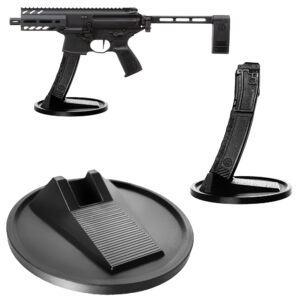
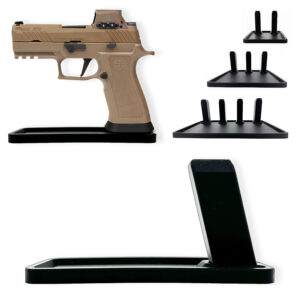
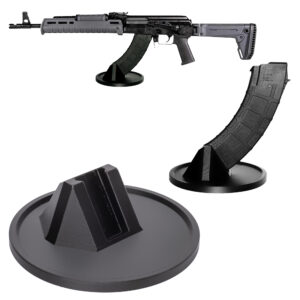


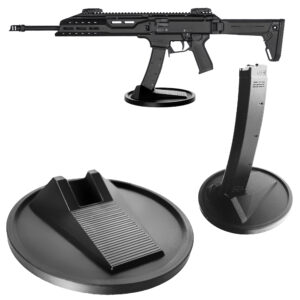
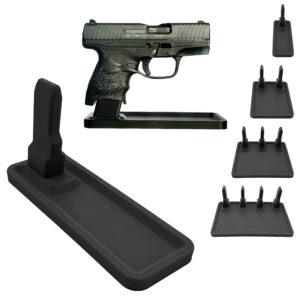

Colt
Colt M4 Carbine
Colt LE6920
Colt AR-15 A4
Daniel Defense
DDM4 V7
DDM4 V9
DDM4 V11
DDM4 ISR (Integrally Suppressed Rifle)
Smith & Wesson (S&W)
M&P15 Sport II
M&P15 Tactical
M&P15T
Bravo Company Manufacturing (BCM)
BCM Recce-16
BCM Recce-14
BCM MCMR Series
Aero Precision
M4E1 Series
AC-15
AR15 Pistol (Various Configurations)
Ruger
Ruger AR-556
Ruger SR-556
Ruger AR-556 MPR (Multi-Purpose Rifle)
Springfield Armory
Saint Victor
Saint Edge
Saint AR-15
PSA (Palmetto State Armory)
PSA PA-15
PSA AR-V
PSA Jakl (AR Pistol)
FN America
FN 15 Tactical Carbine
FN 15 Patrol
FN 15 DMR
Wilson Combat
Recon Tactical
Super Sniper
Protector Carbine
SIG Sauer
SIG M400 Tread
SIG M400 Elite
SIG M400 SDI
LWRC International
IC DI (Direct Impingement)
IC SPR
IC A5
Bushmaster Guns
XM-15 QRC
Bushmaster MOE
XM-15 Patrolman
Rock River Arms
LAR-15 Entry Tactical
LAR-15 Predator
LAR-15 Elite Comp
Stag Arms
Stag 15 Tactical
Stag 15L (Left-Handed Models)
Stag 15 Valkyrie
Noveske Rifleworks
Noveske Gen 4 N4
Noveske Space Invader (AR Pistol)
Noveske Recon
Anderson Manufacturing
AM-15 Optic Ready
AM-15 M4 Carbine
AM-15 Precision Rifle
Adams Arms
AA-15 Piston Rifle
P2 AARS (Adams Arms Rifle Series)
Black Rain Ordnance
SPEC15 Series
BRO Predator
Fallout 15
Diamondback Guns
DB15 Series
DB15CCMLB
DB15EB
Del-Ton Inc.
DTI-15
Del-Ton Echo 316H
Sierra 316M
Windham Weaponry
Windham SRC
Windham VEX-SS
Windham RMCS-4 (Caliber Conversion System)
Christensen Arms
CA-15 G2
CA-15 Recon
CA-15 Titanium Edition
Patriot Ordnance Factory (POF-USA)
Renegade Plus
P415 Edge
Revolution DI
LaRue Tactical
PredatAR
OBR (Optimized Battle Rifle)
LaRue Stealth 2.0
Battle Arms Development
Workhorse Patrol Carbine
BAD556-LW (Lightweight)
Authority Elite Rifle
Faxon Guns
Ascent AR-15
FX-19 (AR Pistol)
Streamline Ultralight Series
KE Arms
KE-15 SLT (Super Lightweight Tactical)
KE-15 Scout Carbine
Primary Weapons Systems (PWS)
MK1 MOD 2-M
MK116 PRO
MK107 (Piston AR Pistol)
ZEV Technologies
ZEV Core Elite Rifle
ZEV AR15 Billet Rifles
Franklin Armory
BFSIII AR-C1
Militia Model
F17-L (Chambered in .17 WSM)
Seekins Precision
SP15 DMR
NX15 Skeletonized Rifle
Havak Bravo
Aero Precision (Additional Models)
EPC-9 (Pistol Caliber ARs)
VG6 AR Rifles
Barrett Guns
REC7 DI
REC7 Gen II
CMMG
MK4 RCE
Resolute 300
Banshee (AR Pistol)
DPMS Panther Arms
Panther Oracle
Panther LR-308
H&K (Heckler & Koch)
HK MR556A1
HK416 (Military Variant)
Rock Island Armory (Armscor)
VR-80 Tactical AR (Shotgun AR Platform)
Troy Industries
Troy SPC-A3
Troy PAR (Pump Action AR)
Wilson Tactical
Tactical Recon AR
Protector Series
F1 Guns
FDR-15 Skeletonized Rifle
BDRx-15 Series
Juggernaut Tactical
JT-15
JT-10 Precision Rifle
AeroSurplus
Surplus AR-15 Rifles (Budget Models)
Thunder Tactical
AR-15 Basic Carbine
Tactical Builder Sets
Radical Guns
RF-15
Forged AR-Series
Dark Storm Industries
DS-15 Featureless Rifles
DS-10 Typhoon
DRD Tactical
Paratus
Aptus AR Rifles
Bear Creek Arsenal
BCA-15
AR Complete Upper Builds
Aero Survival Rifles (ASI)
ASR Tactical Series
Tactical Edge
WARFIGHTER Series
AR-15 Lightweight Rifles
Lone Star Armory
TX15 DMR
TX15 Carbine
HERA Arms
HERA H7
HERA AR-15 Lower Builds
IWI (Israeli Weapon Industries)
Zion-15
DRD Tactical
Tactical Modular Rifles
Quick-Takedown Rifles
V Seven Weapons
1776 Rifle
Hyperlite Rifle
Core Rifle Systems
Core15 Tac III
Core15 Patrol Rifle
Armalite (Original AR-15 Creator)
M15 Tactical
M15 A4 Carbine
DEF15 (Defensive Sporting Rifle Series)
PSA (Palmetto State Armory Additional Models)
PSAK-47 Hybrid (AR-AK Style Hybrid)
PSA Dagger (Pistol Caliber Configurations)
Odin Works
OTR-15
Odin Recon Rifle
Maxim Defense
MDX-508 PDX (Compact AR Pistol)
MDX-510 Rifle